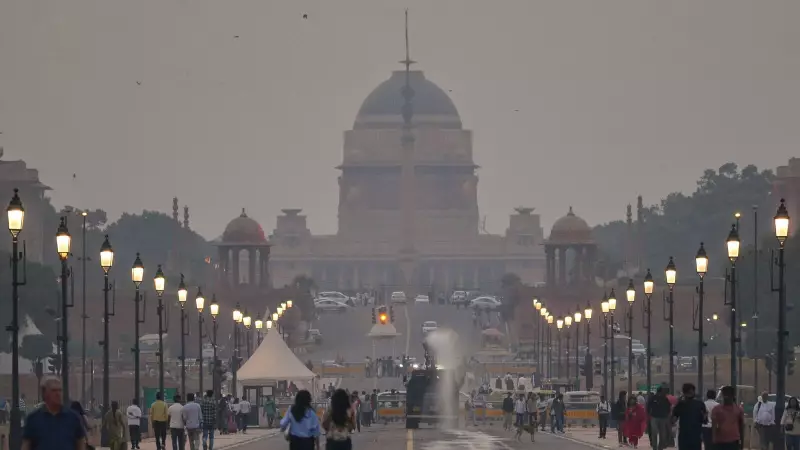
Delhi's air quality registered a slight improvement in the days following Diwali celebrations, but the temporary relief has been overshadowed by a disturbing surge in pollution-related health emergencies across the capital's hospitals.
Health Crisis Outpaces Air Quality Numbers
While monitoring stations showed moderate improvement in Air Quality Index (AQI) readings, medical facilities across Delhi are reporting a significant increase in patients suffering from pollution-induced health complications. The most vulnerable populations—including children, elderly, and pregnant women—are bearing the brunt of this environmental crisis.
Alarming Spike in Respiratory Cases
Hospitals and clinics have witnessed a dramatic rise in patients complaining of:
- Severe breathing difficulties and asthma attacks
- Persistent coughing and throat irritation
- Bronchitis and other respiratory infections
- Worsening of pre-existing lung conditions
Emergency rooms have been flooded with individuals struggling to cope with the toxic air, despite official AQI numbers showing some improvement.
Pregnancy Complications Raise Concerns
Perhaps more alarming is the increase in pregnancy-related issues being reported post-Diwali. Medical professionals have observed:
- Higher incidence of pregnancy complications
- Increased risk to both maternal and fetal health
- More cases requiring emergency medical intervention
- Growing concerns about long-term effects on newborn health
Doctors warn that pregnant women are particularly vulnerable to air pollution, with potential impacts on fetal development and pregnancy outcomes.
The Disconnect Between Data and Reality
The situation highlights a critical gap between environmental data and ground-level health impacts. Even as AQI readings show marginal improvement, the cumulative effect of prolonged exposure to polluted air continues to manifest in serious health consequences.
Medical experts emphasize that the temporary dip in pollution levels doesn't eliminate the health risks accumulated over days of exposure to toxic air.
Protective Measures Recommended
Healthcare professionals advise Delhi residents to:
- Continue wearing N95 masks when outdoors
- Use air purifiers indoors
- Avoid morning and evening outdoor activities
- Seek immediate medical attention for breathing difficulties
- Pregnant women should take extra precautions
The post-Diwali period serves as a stark reminder that Delhi's pollution problem requires more than temporary solutions, as the health implications continue to escalate despite fluctuating AQI numbers.





